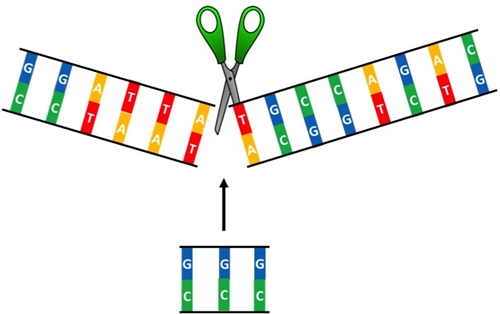19 October 2016. A biotechnology start-up enterprise using genome editing for drug discovery is collaborating with drug maker Novartis on rare metabolic disorders. While the agreement involves an equity investment by Novartis in Perlara PBC, based in San Francisco, other financial and intellectual property aspects of the partnership were not disclosed.
Perlara PBC is a two year-old company, known up to recently as Perlstein Lab PBC — named after its founder Ethan Perlstein — that discovers new drugs for diseases considered too rare to develop cures. The company’s technology starts with genetic engineering of lower-level organisms that share many of the same genetic components as humans, including yeast, nematodes, fruit flies, and zebrafish. These model organisms are then used to create screening mechanisms to find treatment candidates for rare disorders resulting from mutations in single genes causing errant misfolded proteins, or prevent the production of proteins needed for normal functioning.
Perlara’s technology adapts Crispr genome editing techniques — short for clustered, regularly interspaced short palindromic repeats — to develop patient-specific disease models with the mutations removed or corrected. Crispr is a technology based on bacterial defense mechanisms using RNA to identify and monitor precise locations in DNA. The actual editing of genomes with Crispr uses an enzyme known as Crispr-associated protein, or Cas.
The genomic-edited models serve as targets for high-throughput automated screens seeking chemical formulations that can reverse cellular defects caused by the mutations. The company plans to apply this technology to a range of rare diseases, beginning with lysosomal storage disorders, metabolic diseases resulting from a build-up of toxins caused by various enzyme deficiencies. People with lysosomal storage disorders cannot metabolize or break down large molecule proteins, carbohydrates, and fats into their components.
Perlara’s lead program is discovering treatments for Niemann-Pick Type C disease, on which the company is collaborating with Novartis. Niemann-Pick Type C disease is a lysosomal storage disorder where the body cannot transport cholesterol and other lipids, or fatty substances, inside cells. As a result, cholesterol and other lipids build up abnormally in tissue, including brain tissue, damaging the affected areas. According to National Organization of Rare Diseases, most cases of Niemann-Pick Type C disease are detected early in childhood and can progress into life-threatening complications by the second or third decade of life.
Perlara PBC is formed as a public benefit corporation — the PBC in its name — a legislatively-recognized business entity, where the company operates under a set of transparent rules and seeks to achieve a socially desirable mission, as well as maximize return on investment for shareholders. Operating requirements for public benefit corporations are similar to not-for-profit organizations, only public benefit corporations can also retain profits for shareholders.
Read more:
- Orphan Status Granted for Hemophilia Genome Editing
- 566 New Drugs in Pipeline for Orphan Diseases
- Gene-Editing Therapy Advances for Rare Immune Disorder
- Evotec, Foundation Partner on Rare Juvenile Disease
- Patient Registry Started for Rare Genetic Disorder
* * *


 RSS - Posts
RSS - Posts
You must be logged in to post a comment.